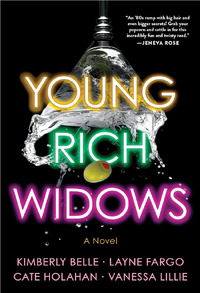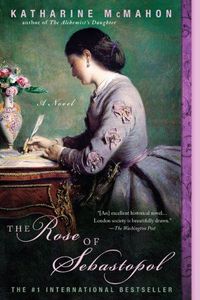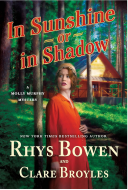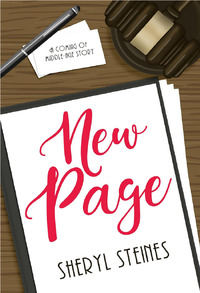 YOUNG RICH WIDOWS |
 April's Affections and Intrigues: Love and Mystery Bloom |

Purchase
Berkley Historical Excerpt of The Rose Of Sebastopol by Katharine McMahonItaly, 1855 We arrived in Narni late on a Sunday evening. Although the door to the Hotel Fina was locked the driver roused a servant who stumbled out with creased shirt tails, brought in our luggage and showed us to a bedroom that smelled of unwashed feet. Nora took away my cloak and bonnet, then I snuffed the candles and lay down. A man was shouting in the distance, perhaps the worse for drink. Instead of sleeping I rode through the night as if still in a carriage jolting over badly made roads across the plains of Italy. Eventually I heard a clock strike five and the rumble of a cart in the square outside and I fell asleep to the sound of women’s raised voices and the clash of a pail against stone. I woke to a blade of sunlight sliced between the shutters – it was nearly mid-morning. Nora was standing over me with a breakfast tray and a letter from Mother which I didn’t read. None of the clothes in my portmanteau was fit to wear, being too crushed, so I put on my travelling dress again and said we would go out at once. In the lobby I struggled to make myself understood by the proprietress, who was dressed in black and whose mouth was pulled down at the ends, as if from despair, but when I showed her Henry’s address she drew us a rough map. Narni was an ancient town built near the top of a hill and the Hotel Fina was at its centre, in a little square. What with the bunch of women round a fountain and the confusion of streets and shopfronts there was no telling which direction was the right one so we set off at random up a flight of steps and under an arch. The sun was very hot, the street oppressively narrow and our travelling clothes too heavy so we stopped under a shady porch while I consulted the map. A cluster of children formed around us, I asked one of them for ‘Via del Monte, Signora Critelli?’, and he set off back the way we’d come. We followed him, recrossed the little square, and this time plunged down a steep street with the houses built so close on either side I could almost touch them. Washing of the most intimate nature hung from balconies or was suspended like dingy carnival flags from wall to wall. I was surprised to find Henry lodging in such a poor quarter. Eventually the child paused in front of an open doorway where there was a smell of wet stone and flowers because someone had just watered a pot of narcissi. I hovered at the entrance, my resolve gone, wishing that I had never left England or that at the very least had sent Henry a note to let him know I was on my way. Now that I was here I wondered whether he would think it appropriate. I was also afraid of seeing him ill. What if he didn’t recognise me, or I him? Unlike Rosa, I never knew what to do in the face of sickness. I glanced at Nora but she raised an eyebrow as if to say: You got us into this; don’t expect any encouragement from me. In the end I crept along the passage to a kitchen where a woman stood with her arms immersed in a wash bowl. She squinted at me through the droplets of water that trickled into her eyes. ‘Dr Henry Thewell?’ I asked. She gaped, dried her face first on a towel then on her skirt, leaned her hand on the door frame and let fly a torrent of Italian which ended at last in a question. I shook my head. ‘Non capisco. Inglese. Mi chiamo Mariella Ling-wood. Ma-ri-ella. I am engaged to be married to Dr Thewell. Dov’e Henry Thewell?’ I had learned from watching my father that it is better, in moments of crisis, to speak quietly rather than to shout. Certainly Signora Critelli calmed down; she went on talking but less rapidly, wiped her hands again, gestured that I should get out of the way and led me up a narrow flight of stairs to the first floor where she knocked sharply on a door, flung it wide and announced me with the words: ‘Signorina Inglese.’ I took a step further, and another. The room was in semi-darkness because, though one shutter was half open, a drab blue curtain covered the window. Through the gloom I saw that the room was small and contained a narrow bed, a washstand, a table heaped with books and a low chair with a rush seat upon which an untouched tray with a roll, a jug and a cup had been left. There was a smell of cold coffee and damp linen. Henry was in bed but he’d raised himself on one elbow and even in the darkness I saw the eager brilliance of his eyes and that his hair had grown so long it flopped over his brow. We stared at each other. Then I stumbled across the room, knelt by the bed and held him. My bonnet was knocked sideways as he covered my face with hot kisses. I wept and seemed to flow out of myself when I felt his lips on my hair, ear and neck. Though I was distantly aware that the door behind us was closed abruptly and that we had been watched, I didn’t mind. I clasped his too thin arms as his hands caressed my back and I helped him with my bonnet ribbons, wondering how I could ever have doubted that I did the right thing in coming here. I realised that I had waited most of my life to have Henry kiss my throat, even to let him fumble with the buttons of my gown and pull loose the neck of my shift. My skin contracted as his lips closed on my breast. His breath came in rasping pants between kisses. I fell back on the pillow, smoothed his hair and felt him grow heavy in my arms. Astonishingly, he slept. For perhaps half an hour I didn’t move though I lay half off the bed, my bonnet dropping from my neck, a draught swaying the curtain, the clop of a mule’s hooves on the street below. Because my hair was caught by the weight of his head all I could see was a fragment of cracked ceiling, a broken frieze and the shifting blue-grey curtain. I kissed him again and again, tiny, weightless kisses on his hair, which was far softer than I had ever imagined, like a cat’s fur, and I thought: All these weeks he has been alone, watching that curtain and waiting for me. I was afloat in the miracle of his touch, the strangeness of a male body half covering mine, the fact that this was Henry who I had missed so much in the past months that even the blood in my veins ached for him. Then I tightened my hold because although never in my wildest imaginings had I expected such a loving, needy reception as this, nor had I really thought to find him so weak that he was confined to bed. I had always relished his energy and the hardness of his arm under my hand but now he was as frail as a bird. And he smelled entirely different to the Henry who never failed to delight me with his scent of good soap, balsam or camphor. Instead the odour of confined flesh reminded me of the governesses’ home. As he woke his breath grew uneven on my neck. When he moved his head my skin was damp and hot from where his cheek had rested on me. I closed my eyes as my breast tightened under his circling fingertip. This is Italy, I thought, no one will know. And anyway, what do I care? ‘My dear love,’ he whispered, ‘I thought you would never come.’ His finger was making a diminishing spiral on my nipple so my words were disjointed: ‘I wasn’t sure you would want me here. And yet I wouldn’t be stopped, even by you, so I thought it best just to come without letting you know.’ ‘You are my love, my love.’ ‘Your letters sounded so lonely I thought I must come.’ He nuzzled his cheek into my bosom and pressed his face to my neck, drawing me closer and closer under him. I didn’t mind that he had the smell of fever on his breath; I was scarcely conscious of anything except the heat of him as he murmured, ‘I thought I might never see you again. I thought you were gone.’ ‘Of course you’d see me again.’ ‘But you never answered me. You never said a word. It was killing me.’ He laid his head beside mine on the pillow and reached out to turn my face towards his. I had time to see how pale his skin was and that because his moustache had been shaved off his mouth was as full-lipped and boyish as when I first knew him. Then he said, ‘Let me look at you at last. My Rosa. My dear love. Dearest Rosa.’ Excerpt from The Rose Of Sebastopol by Katharine McMahon |
|
| |||
|
||||




 © 2003-2024
© 2003-2024